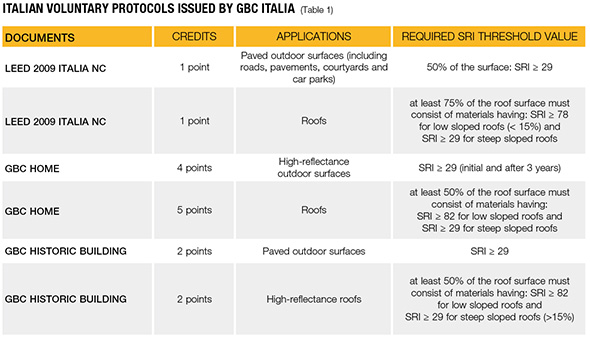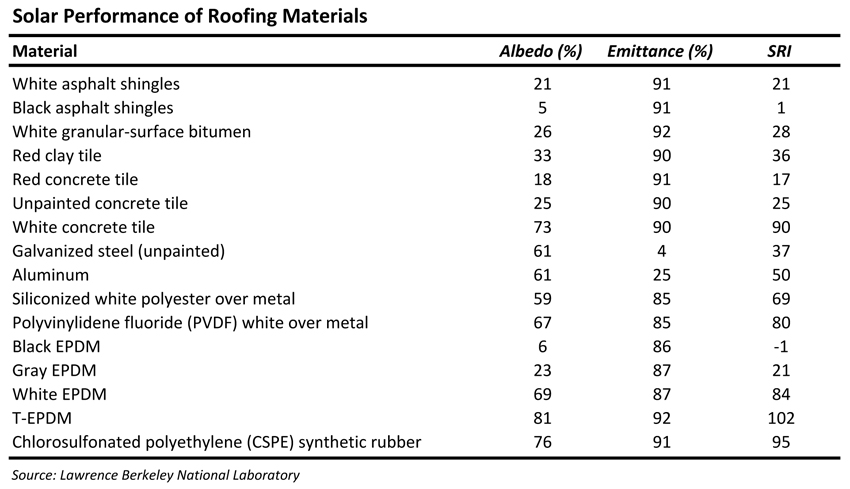Asphalt coatings for example have aluminum pigments added to asphalt cutbacks and emulsions to give coatings solar reflectance index sri values of 21 30 on a scale of 0 100.
Sri value of roofing materials.
The higher the sri the cooler the roof will be.
It ranges from 0 to 100.
This measurement can be used as an indicator of how hot shingles are likely to become when they re exposed to the sun.
Low slope roofs require an initial sr value of 0 65 or higher and 0 50 or greater after three year.
It is defined so that a standard black surface reflectance 0 05 emittance 0 90 is 0 and a standard white surface reflectance 0 80 emittance 0 90 is 100.
Energy star requires an initial sr value of 0 25 or higher for steep slope 2 12 roofs and 0 15 or greater after three years.
A value of 0 indicates that the material absorbs all solar energy and a value of 1 0 indicates total reflectance.
Recycled content of berridge metal.
The sr value is a number from 0 to 1 0.
The third metric used to measure the performance of cool roof coverings is called the solar reflectance index sri.
The higher the value the more heat the material emits.
Sri measures the roof s ability to reject solar heat defined such that a standard black reflectance 0 05 emittance 0 90 is 0 and a standard white reflectance 0 80 emittance 0 90 is 100.
Ref cool roof rating council solar reflectance index calculation worksheet.
Incorporates both solar reflectance and thermal emissivity in a single value.
Solar reflectance index sri.
Different roofing technologies have different sri values.
This measure is calculated from the tsr and te.
Sri can be calculated based on the pitch of a roof its weight its solar reflectance thermal emittance emissivity and its ageing characteristics.
The solar reflectance index sri is a measure of the constructed surface s ability to reflect solar heat as shown by a small temperature rise.
Solar reflective shingles and solar reflective roofing membranes can be an important component in a building system designed to reduce overall building energy consumption and the impact the home or building has on the environment.










